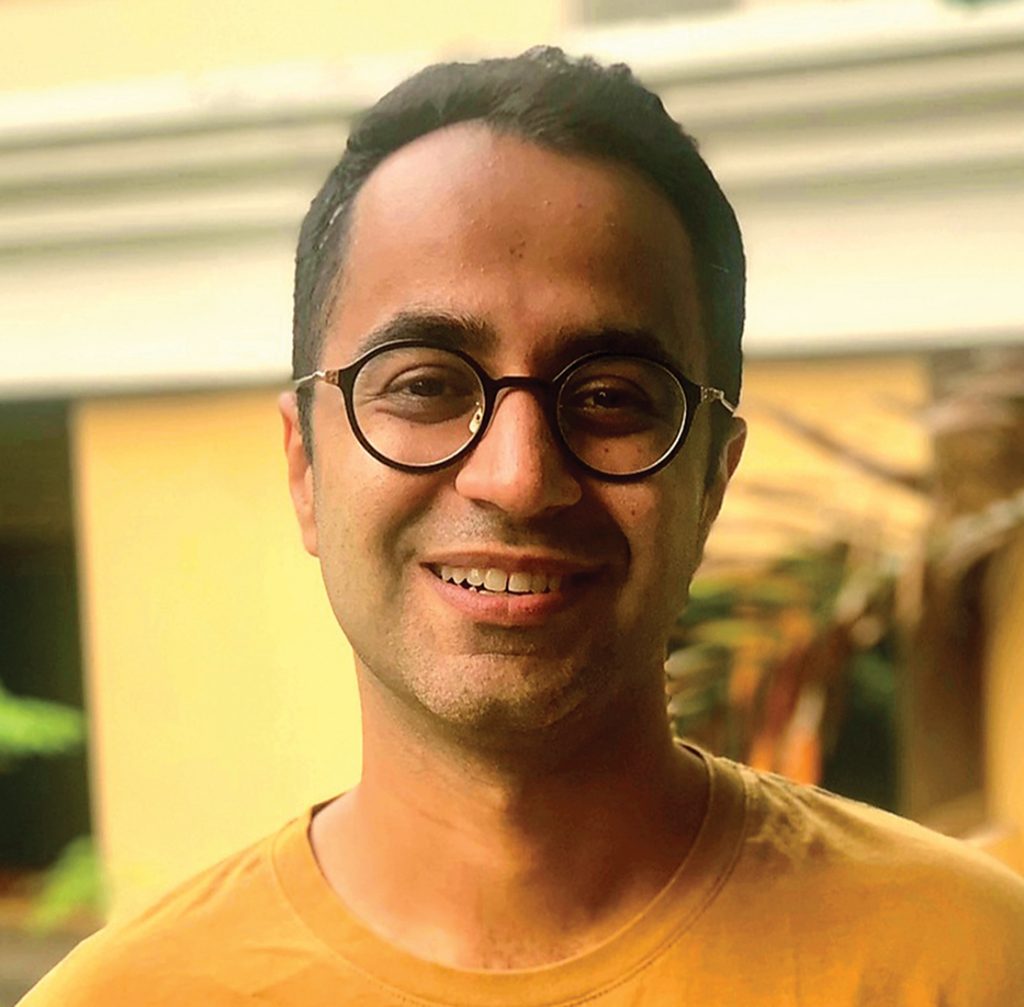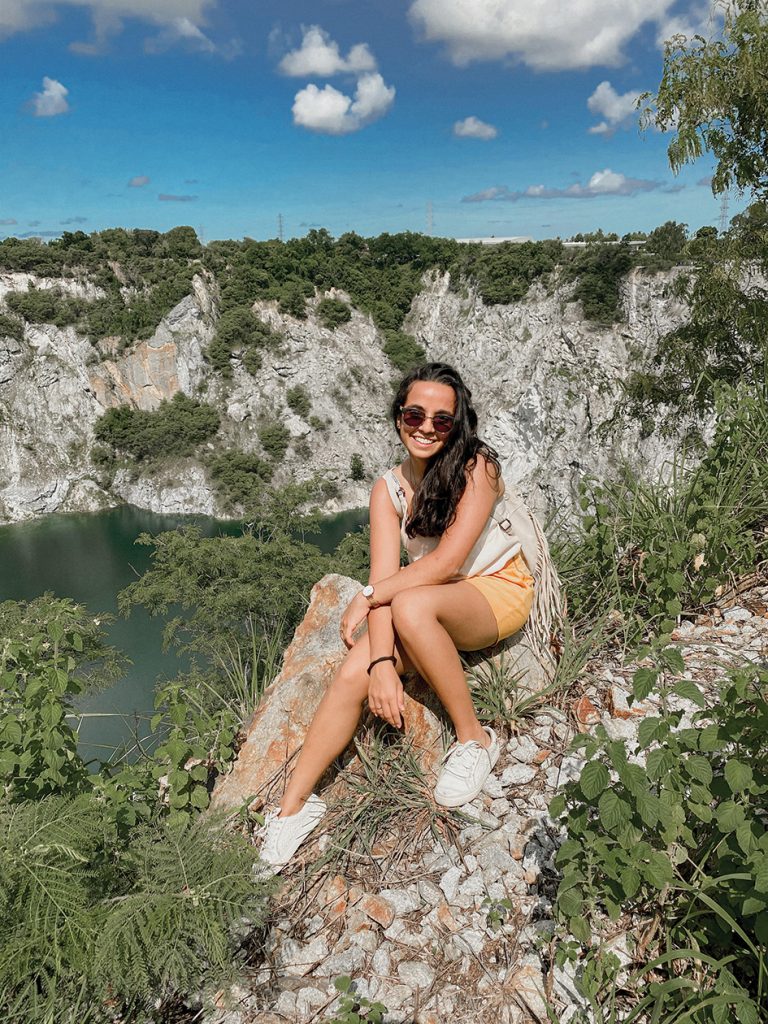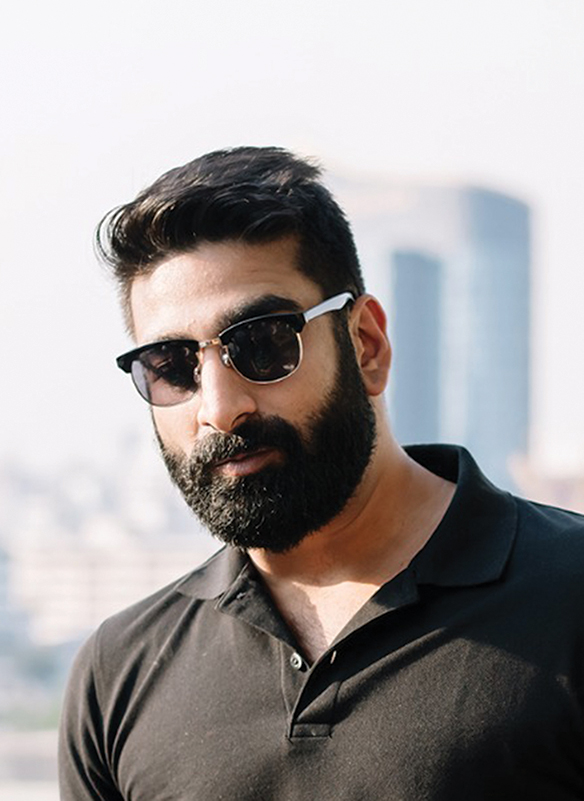How they’re staying lean, green, and keen.
By Aiden Jewelle Gonzales
The word sustainability has been bandied around for years as a much-needed solution to the global climate crisis, and it’s hard to miss the growing green movement in Bangkok itself, from plant-based restaurants to our now-ubiquitous shopping totes. Even knowing this, however, I was surprised not only by how grave current environmental statistics are, but also, by how many people around the world are choosing a more sustainable lifestyle in response. For example, although Thailand is currently producing about 50,000 tonnes of solid waste per year, most of which ends up in the sea, recent surveys have shown that around half of respondents in Bangkok are willing to, or have changed, their lifestyles to help the environment.
Masala interviewed four such members of the Thai-Indian community who’ve turned over a new (green) leaf and started a more environmentally-conscious story.
Chetanan Chawla
Manager, A.A. Busaba Ltd., Part.
Having children encouraged my change in lifestyle. The creature comforts of Bangkok and modern life can trigger the boiling frog syndrome, such as the PM2.5 problem where micron-level dust particulates have plagued Thailand’s North for many years, but no one tackled the problem in its nascency. Now, it encompasses Bangkok, and we’re merely treating the symptoms, not the cause, with solutions like air purifiers.
I decided to reduce excess and become more aware of my consumption by opting for durability over price. I am also undertaking a part time master’s in Environment, Development, and Sustainability at Chulalongkorn University to better understand how to make an impact as an individual and as a business operator. Changing my habits and realigning personal preferences hasn’t been easy, however – it requires a conscious effort that calls on discipline and repetition in practice. This would be made easier if these environmental externalities were included in the prices of products, to correctly reflect their impact on sustainability. It’s easy for a business to pass on responsibilities to the consumer, but both should be equally responsible for the environmental impact.
For those looking to live more sustainably, make a conscious change to your purchasing patterns. If something is surprisingly cheap, ask why? Is there a greater cost that’s missed out? The true impact of overconsumption without attribution will be a generation of kids stuck indoors, avoiding contaminated elements, because we’ve waited too long, or for someone else, to fix the problems.
Arissara Kantapura
Psychology student, University of Queensland
My first dive underwater showed me the dire impacts of my unsustainable lifestyle on land. I was excited to see the beautiful coral reefs and sea creatures, but it was heartbreaking to see the dull underwater life and plastic pollution, all of which dimmed my enthusiasm. This was reiterated to me during a beach cleaning experience I had, after which I reduced my plastic consumption by, for example, switching to a stainless steel bottle that I carry everywhere I go. I also turned to more sustainable products for my everyday life, choosing to buy from companies thathave a recycling plan for when I’m done using the product.
My biggest challenge was that it was hard to find companies that aligned with the sustainability mindset I was looking for. The most available products are also those that are easily-disposable and that don’t require people to think about where the product goes after it’s been used. I try to keep myself informed about the companies I’m buying from, from drinking water, to the shampoos that I use. This allows me to navigate my way around using mostly- recyclable products.
My advice is to research the information you need to make the changes you desire; it takes a little effort but once done, it gives you the satisfaction of knowing that you are doing the best you can for this beautiful Earth we live in.
Prianka Gilmour
Communications Manager, ila Generation
Remember that horrible video in 2015 of someone pulling a straw out of a sea turtle’s nose? That was the catalyst that pushed me from wanting to do more, to actually doing more. For me, sustainability is synonymous with protecting my animal and plant friends, local farmers, and my own health. Eating local and seasonal vegetables, for example, and choosing to buy from small organic farms, means the distance your food travels from farm to table is a fraction compared to the fresh food you are buying at the grocery store. When you choose to eat sustainably, you eat healthier, the local economy thrives, and the planet can start healing.
When I first sought to source locally, it was challenging to find information on where to go. However, we all have a friend that’s a health nut – I suggest asking them where to start, and following that rabbit hole. Facebook groups like Vegans of Bangkok are also a great source of information. Start local and know the story of the products you buy – e.g. I buy the yummiest nut butter from Paweenee’s Nut Butter, all my fresh dairy products from Homemade Dairy Co., and the most delicious pickles from The Serial Pickler. I have all the local producers I buy from on WhatsApp – it’s important to cultivate a relationship with them, and to buy from people who care immensely about what they do!
Chet Sethi
Interior Design Contractor and Interior Designer
Documentaries such as Cowspiracy: The Sustainability Secret (2014) and The Game Changers (2018) prompted my change in lifestyle, which was also propelled by my inability to process dairy. In response, I turned vegan, although it took me a while to admit it to people. With a little bit of research,you’ll find a substantial amount of evidence that you reduce 60 to 70 percent of your individual carbon footprint by just replacing your meat and dairy with a more plant-based diet.
The biggest challenge I’ve faced is the lack of options in certain places, but I just treat the situation as part of my intermittent fasting, and get through it. I also crave cheese sometimes! However, it’s the best time to be vegan, as the cruelty-free community is ever-expanding. I believe all the nutrients we need are available in plants and supplements, you just need to do your research before jumping in.










